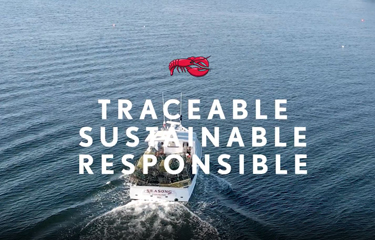A growing number of class-action lawsuits are being filed against seafood retailers and foodservice outlets, claiming their offerings do not meet their own sustainability claims.
Earlier this month, in a complaint filed in the U.S. Superior Court in the District of Columbia, ALDI was accused of false advertising and marketing, with the advocacy group GMO/Toxin Free USA alleging ALDI’s claim that its salmon is sustainably sourced is not credible. Earlier this year, Mowi agreed to settle a similar lawsuit for USD 1.3 million (EUR 1.1 million). The complaint alleged that the sustainability claims on its Ducktrap River of Maine smoked salmon were false.
Now, Red Lobster is facing a class action complaint alleging that its farmed shrimp and Maine lobster are not sustainably sourced, as the company claims they are. The new complaint, filed by a consumer in U.S. District Court in California, claims that Red Lobster’s shrimp is sourced from “industrial shrimp farms that do not employ the highest environmental or animal welfare standards.” In addition, the restaurant chain’s Maine lobster is sourced from suppliers that use environmentally destructive practices that threaten endangered populations of North American right whales, according to the complaint.
Orlando, Florida, U.S.A.-based Red Lobster is owned by a consortium called Seafood Alliance, which includes the restaurant chain’s major investor, Thai Union Group. In an emailed response to SeafoodSource, Thai Union spokesperson said did not have an update on the pending litigation, but “will be sure to follow up with additional information as it becomes available.”
Red Lobster’s shrimp is sourced from Indonesia, Vietnam, India, and China, and the complaint claims the farms there use unsustainable and inhumane high-density industrial farming methods to increase production.
“Due to rampant overcrowding in the crowded ponds used for shrimp farming, and to the corresponding stress of increased stocking density upon on a shrimp’s immune system, severe disease outbreaks on shrimp farms are common,” the complaint states.
The lawsuit alleges that, as a result, the farms from which Red Lobster sources its shrimp “frequently overuse antibiotics to prevent these disease outbreaks.” Farmers also use chlorine-based disinfectants, with one survey of shrimp farmers in Vietnam finding that 90 percent of farmers relied on disinfectant chemicals in their regular farming practices.
The complaint also claims shrimp farm expansion in Southeast Asia is the single-largest driver of mangrove deforestation and the loss of critical habitat and carbon-absorbing flora.
“Researchers have calculated that the mangrove deforestation involved in the production of a single shrimp dinner produces greenhouse gas emissions equivalent to a road trip from New York to Los Angeles,” the lawsuit states.
While Red Lobster claims that its shrimp is sustainably sourced, the complaint notes the Monterey Bay Aquarium Seafood Watch program recommends consumers avoid shrimp from the regions that Red Lobster sources from due to “environmentally destructive practices, poor reporting of environmental data and standards, and overuse of antibiotics.”
The lawsuit claims that Red Lobster sources Pacific whiteleg shrimp from Indonesia, “despite the fact that Seafood Watch concluded that such shrimp should generally be avoided due to ‘poor management of cumulative environmental impacts from effluent discharge’ as well as ‘the widespread use of several antibiotics [that] has led to the development of strains of bacteria that are resistant to medicines that are highly or critically important to human health.'”
Red Lobster’s sourcing of Pacific whiteleg shimp from Vietnam was also questioned in the lawsuit.
“Seafood Watch also found such shrimp from Vietnam should generally be avoided,” the complaint said.
Red Lobster’s sourcing of North American lobster from the Gulf of Maine lobster fishery was also scrutinized in the lawsuit.
In April 2020, the U.S. District Court for the District of Columbia held that inadequate regulation of the Gulf of Maine lobster fishery violated the Endangered Species Act and found that the fishery “had the potential to harm the North Atlantic right whale at more than three times the sustainable rate,” according to the complaint.
As a result, in August 2020, the Marine Stewardship Council suspended its sustainability certification for the Gulf of Maine lobster fishery.
Red Lobster is able to charge a premium for its dishes based on its sustainability claims, according to the lawsuit.
“Had the plaintiff known at the time that Red Lobster’s products were not sustainable but sourced from suppliers that use environmentally harmful and inhumane practices, she would not have purchased or continued to purchase the products at the requested prices,” the complaint said.
Image courtesy of Red Lobster







